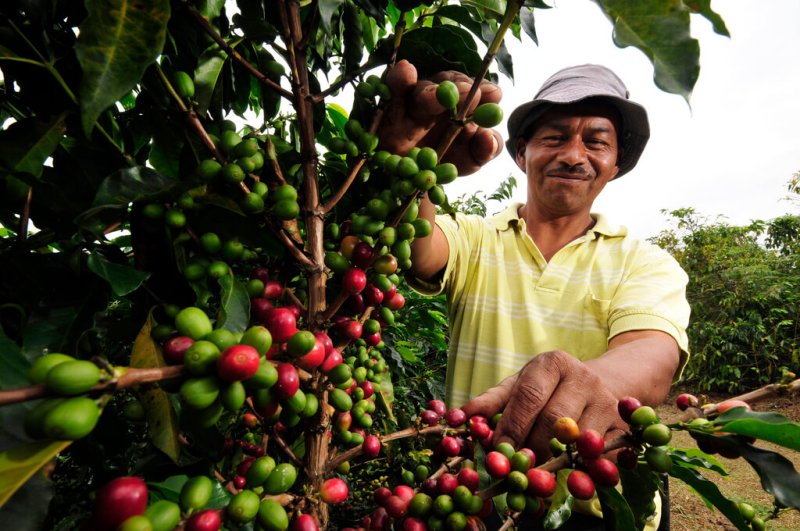Genetic diversity or lack thereof can have real consequences for our diets, and more importantly, for our health.
…
The concern is that the arabica coffee (Cofea arabica), the darling of aficianados, is being threatened by a rust, which is a type of fungus. In 2008 it wiped out 40 percent of Colombia’s coffee crop. The problem is that “Cultivated arabica plants have a genetic diversity of just 1.2%, compared with more than 20% for crops such as rice and soy, making it less able to adapt to changing conditions.” How to deal with this (besides switching to tea, that is)? Suggested answers include raising healthier trees by amending the soil, devising more effective fungicides, and cross-breeding to incorporate resistance genes from wild relatives. These solutions could certainly help, but would take a fair amount of time to be effective. Enter genetic engineering — why not isolate and incorporate those same resistance genes from wild relatives into the arabica genome? It certainly would be faster than cross-breeding, and wouldn’t require the development of new pesticides.
…
Whatever the reasons, lack of genetic diversity in plants, animals and humans is an issue that can be dealt with, at least in theory, by genetic engineering. We should be accelerating research into how best to utilize this powerful technology to address such problems.
Read full, original post: Low Genetic Diversity Afflicts Coffee And Dogs: Genetic Engineering Could Help































